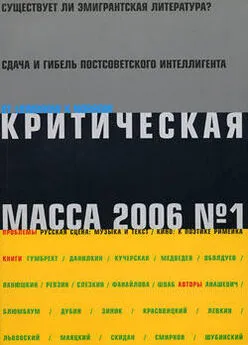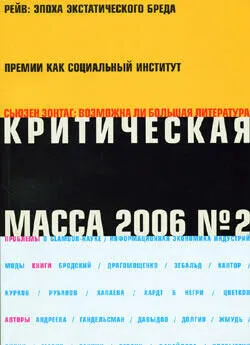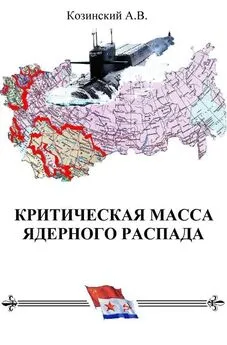Филипп Болл - Критическая масса, как одни явления порождают другие
- Название:Критическая масса, как одни явления порождают другие
- Автор:
- Жанр:
- Издательство:Гелеос
- Год:2008
- ISBN:978-5-8189-1442-8
- Рейтинг:
- Избранное:Добавить в избранное
-
Отзывы:
-
Ваша оценка:
Филипп Болл - Критическая масса, как одни явления порождают другие краткое содержание
Эти вопросы волновали человечество на протяжении веков. Томас Гоббс, Адам Смит, Иммануил Кант, Огюст Конт, Джон Стюарт Милль, Карл Маркс и другие философы рассматривали их с различных политических позиций. Однако им недоставало инструментов, которыми располагает современная физика.
Филип Болл, известный британский ученый, редактор-консультант журнала Nature, показывает, как, применяя эти инструменты, можно понять многие аспекты поведения человеческих масс. Как только человек осознает, что большинство его решений принимается под влиянием других людей, перед ним открывается неожиданная и даже, возможно, тревожная предсказуемость законов развития общества.
Настоящее издание может рассматриваться и как справочник, и как книга для чтения, рассчитанная на самый широкий круг читателей.
Критическая масса, как одни явления порождают другие - читать онлайн бесплатно полную версию (весь текст целиком)
Интервал:
Закладка:
2 F Y.Edgeworth (1888). «Tests of accurate measurement.» In Papers Relating to Political Economy, vol. 1, p. 331. Macmillan, London, 1925.
3 F.Y. Edgeworth (1881). Mathematical Psychics: An Essay on the Application of Mathematics to the Moral Sciences, pp. 12-13. Kegan Paul & Co., London.
4 F.Y. Edgeworth, Mathematical Psychics, p. 50.
5 Heilbroner, p. 176.
6 J.M. Keynes (1926). «Francis Ysidro Edgeworth,» In Essays in Biography, p. 224. W. W. Norton, New York, 1963.
7 P.Krugman (1994). Peddling Prosperity, p. xi. W.W. Norton, New York.
8 Heilbroner, p. 317.
9 D.Howell (2000). The Edge of Now. Macmillan, London.
10 J. J Kay (2000). «Economic with the truth.» Prospect, October, p. 70.
11 J M.Keynes (1936). The General Theory of Employment, Interest and Money, p. 161. Macmillan, London, 1973.
12 G.Soros (1994). Quoted in the editorial introduction to The Economy as a Complex Evolving System II, ed. W.B. Arthur, S.N. Durlauf & D.A. Lane, p. 15. Addison-Wesley, Reading, Mass.
13 Kay, p. 70.
14 A.Kirman (1996). «Some observations on interactions in economicsi». Paper presented at Workshop on Structural Change, Manchester Metropolitan University, U. K., May 20-21,1996.
15 Ibid.
16 Arthur, Durlauf & Lane, p. 9.
17 C.Davenant (1696). «An Essay on the East-India-Trade,» p. 25. London.
18 A.Smith (1759). The Theory of Moral Sentiments, p. 82. Ed. D.D. Raphael & A.L. Macfie. Clarendon Press, Oxford, 1976.
19 E.Burke (1797). Letter to Arthur Young, 23 May. In The Worb and Correspondence of the Right Honourable Edmund Burke, vol. II, p. 398. Francis & John Rivington, London, 1852.
20 Y.Louzoun, S.Solomon, J.Goldenberg & D.Mazursky (2002). «The risk at being unfair: world-size global markets lead to economic instability.» Preprint.
21 J M. Epstein & R. Axtell (1996). Growing Artificial Societies, p. 136. MIT Press, Cambridge, Mass.480.
ГЛАВА 10. НЕОБЫЧНЫЕ ПРОПОРЦИИ
ЭПИГРАФЫ
George Kingsley Zipf (1949). Human Behavior and the Principle of Least Effort, p.27, Hafner, New York, 1965.
Herbert Simon (1996). The Sciences of the Artificial, 3rd ed., p. 2. MIT Press, Cambridge, Mass.
Philip Anderson (1997). In The Economy as а Complex Evolving System II, ed. W. В Artb S.N. Durlauf & D.A. Lane, p. 566. Addison-Wesley, Reading, Mass.
1 L.Laloux, M.Potters, R.Cont, J.-P. Aguilar & J.-P. Bouchard (1999). «Are financial crashes predictable?» Europhysics Letters 45, 1-5.
2 P.Bak (1997). How Nature Works, pp. 187-88. Oxford University Press.
3 Ibid., p. 191.
4 A. Tennyson (1842). «Locksley Hall,» p. 20, line 137, in Locksley Hall and Other Poems. Ernest Nister, London.
5 B.Mandelbrot (1983). The Fractal Geometry of Nature. Freeman & Co., New York.
6 E.Wolf (1996). «Trends in household wealth during 1989-1992.» Submitted’to the Department of Labor, New York. And J.Diaz-Gimenez, V.Quadrini & J.V. Rios-Rull (1997). «Dimensions of inequality: facts on the U.S. distributions of earnings, income and wealth.» Quarterly Review of the Federal Reserve Bank of Minneapolis 21, 3-21.
7 C.Snyder (1940). Capitalism the Creator, p. 417. Macmillan, New York.
8 Z.-F. Huang & S.Solomon (2001). «Finite market size as a source of extreme wealth inequality and market instability.» Physica A 294, 503-13.
9 Zipf, p.543.
10 Ibid., p.544.
ГЛАВА 11. КОЛЛЕКТИВНАЯ РАБОТА
ЭПИГРАФЫ
Charles Handy (1993). Understanding Organizations, 4th ed., p. 313. Penguin, London. John Burton Sanderson Haldane (1949). «Shapes and weights.» In What Is Life? p. 186.
Alcuin Press, Welwyn Garden City, England.
E.Fritz Schumacher (1974). Small Is Beautiful, p. 55. Sphere, London.
1 Quoted in G.Monbiot (2000). Captive State, pp. 166-67. Macmillan, London.
2 A Review of Monopolies and Mergers Policy: A consultative document. Cmnd 7198, pp. 136-7. HMSO, London, 1978.
3 A. Smith (1776). An Inquiry into the Nature and Causes of the Wealth of Nations. Abridged version, ed. L.Dickey (1993), p. 5. Hackett, Indianapolis.
4 Monbiot, p. 179.
5 R.Axtell (2001). «Zipf distribution of U.S. firm sizes.» Science 293 ,1818-1820.
6 J.Sutton (1997). «Gib rat’s legacy.» Journal of Economic Literature XXXV, pp. 42-43.
7 R. Axtell (1999). «The emergence of firms in a population of agents: local increasing returns, unstable Nash equilibria, and power law size distributions.» Center on Social and Economic Dynamics, Working Paper no. 3, p. 3. Brookings Institution, Washington, D. C.
8 Sutton, p. 57.
9 J.Kay (2003). «The real economy.» Prospect, May, p. 28.
10 Axtell (1999), p. 87.
ГЛАВА 12. ВСТУПАЙ В КЛУБ
ЭПИГРАФЫ
John Stuart Mill (1843). A System of Logic, pp. 572-73. Longmans, Green & Co., London, 1884.
Eric Hobsbawm (1994). Age of Extremes, p. 147. Abacus, London.
L.N. Tolstoy (1869). War and Peace, trans. R.Edmunds, vol. 2, p. 1426. Penguin, Harmondsworth, 1969.
1 Thucydides, History of the Peloponnesian War, trans. B.Jowett, 2nd ed., book III. para. 11, Oxford University Press, London, 1900.
2 R.Axelrod & D.S. Bennett (1993). «А landscape theory of aggregation.» British Journal of Political Science 23, 211-33, here p. 219.
3 K. Waltz (1979). Theory of International Politics, p. 167. Addison-Wesley, Reading, I Mass.
4 G.H. Snyder (1984). «The security dilemma in alliance politics,» World Politics 36, 461-95.
5 Hobsbawm, p. 162.
6 M.Oakeshott (1933). Experience and Its Modes, p. 128. Cambridge University Press.
7 Quoted in N. Ferguson (1997). Virtual History, p. 1. Picador, London.
8 H.Trevor-Roper (1981). «History and imagination.» In History and Imagination: Eassays in Honour of H.R. Trevor-Roper, p. 364, ed. V.Pearl, B. Worden & H.Lloyi-Jones. Duckworth, London.
9 J Ferguson, p. 85.
10 Ibid.
ГЛАВА 13. МНОЖЕСТВА В ДОЛИНЕ РЕШЕНИЙ
ЭПИГРАФЫ
Karl Mannheim (1936). Ideology and Utopia Harcourt, Brace, New York. Quoted in Biernstedt (1959). The Making of Society, p. 505.
Joshua Epstein (2001). «Learning to be thoughtless: social norms and individual computation.» Computational Economics 18 (1), 9-24.
Malcolm Gladwell (2001). The Tipping Point, p.259. Abacus, London.
1 The Onion 36 (40), 9 November 2000. See www.theonion.com/onion3640/bush_or_ gore, html
2 Quoted in M.J. Hinich and M. C Munger (1997). Analytical Politics , p. 3. Cambridge University Press.
3 Epstein, pp. 9-24.
4 T. C Schelling (1973). Micromotives and Macrobehavior, p. 20 W.W. Norton, New York.
5 Ibid., p. 23.
6 P.Ormerod (2002). «Sense on segregation,» Prospect, February, 12-14.
7 M.Lind (2001). «Are there global political values?» Prospect, December 2001,
p 20
8 F.Dostoevsky (1911). Crime and Punishment, p. 64. J.M. Dent & Sons, London
9 M. (Gladwell, p. 8.
10 G.B. Shaw (1908). Getting Married, p. 111. In Selected Passages from the Works of Bernard Shaw, p. 142. Constable & Co., London, 1912.
11 Shaw, Getting Married, p. 130. In Selected Passages, p. 145.
12 G.S. Becker (1991). A Treatise on the Family, p. 325. Harvard University Press, Cambridge, Mass.
13 Ibid., p.232.
14 Ibid., p. 32.
15 Ibid., p. 59.
16 Ibid., p. 4.
17 Ibid.
18 Ibid., p. 19.
19 Schelling, p. 36.
20 W.Newmarch (1860). «Some observations on the present position of statistical inquiry with suggestions for improving the organization and efficiency of the International Statistical Congress.» Journal of the Statistical Society of London 23, 362-63.
21 W.B. Arthur (1994). «Inductive reasoning and bounded rationality.» American Economic Review 34,406-11.
22 Ibid.
ГЛАВА 14. КОЛОНИЗАЦИЯ КУЛЬТУРЫ
ЭПИГРАФЫ
Jean-Jacques Rousseau (1772). «Considerations sur le Gouvernement de Pologne.» In The Political Writings ofJean Jacques Rousseau, vol. II, ed. C.E. Vaughan (1915), p. 432. Cambridge University Press.
Cindy Gilday, quoted inJ.Mander, «Technologies of globalization.» In The Case Against the Global Economy, ed. E. Goldsmith & J.Mander (2001), p. 52. Earthscan, London.
Susan Geoige (2002). Quoted in «Globally locally,» New Scientist, 27 April, p. 44.
1 J.M. Epstein & R. Axtell (1996). Gromng Artificial Societies, p. 163. MIT Press, Cambridge, Mass.
2 Quoted in I. Peterson (1996). «The gods of Sugarscape.» Science News, 23 November, p. 332.
3 Epstein & Axtell, p. 52.
ГЛАВА 15. МАЛЫЕ МИРЫ
ЭПИГРАФЫ
Emile Durkheim (1879). Revue Philosophique, December.
Marc E.J. Newman (2003). «Ego-centered networks and the ripple effect,» Social Networks 25, 83-95.
1 S.Milgram, quoted in M.Gladwell (2001). The Tipping Point, p. 36. Abacus, London.
2 J. Guare (1990). Six Degrees of Separation: A Play. Vintage, New York.
Pud 5.2
Kevin Bacon — Eddie Albert: The Big Picture
Kevin Bacon — Meryl Streep: The River Wild
Kevin Bacon — Jack Nicholson: A Few Good Men
Kevin Bacon — Maximilian Schell: Telling Lies in America
Kevin Bacon — Allison Caine: Diner
Kevin Bacon — Diane Lane: My Dog Skip
Rod Steiger — Humphrey Bogart: The Harder They Fall
Rod Steiger — Eddie Albert: The Longest Day
Rod Steiger — Jack Nicholson: Mars Attacks!
Rod Steiger — Diane Lane: Cattle Annie and Little Britches
Rod Steiger — Karl Maiden: On the Waterfront
Rod Steiger — Marlon Brando: On the Waterfront
Rod Steiger — Maximilian Schell: The Chosen
Marlon Brando — Karl Maiden: On the Waterfront
Marlon Brando — Maximilian Schell: The Freshman
Marlon Brando — Jack Nicholson: The Missouri Sreabl
Jack Nicholson — Meryl Streep: Ironweed
Humphrey Bogart — Eddie Albert: The Wagons Roll at Night
Karl Malden — Allison Caine: Nuts
Maximilian Schell — Meryl Streep: Julia
ГЛАВА 16. КАК ТКАЛАСЬ ПАУТИНА
ЭПИГРАФЫ
Manuel Castells (2001). The Internet Galaxy: Reflections on the Internet, Business, and Society, p. 207. Oxford University Press, Oxford.
Gustavo Cardoso (1998). Pam uma Sociologia do Ciberespaco: Comumdades Virtuais em Portugues, p. 116 (trans. M.Castells). Celta Editora, Oeiras, Portugal.
William Shakespeare (1602-1604). Othello III, iv, 69.
1 L.Irving (1998). Quoted in E.Wasserman (1998). «Feds take steps against threat of cyber terrorism.» CNN, 25 September. See www.cnn.com/TECH/computing/ 9809/25/cyberterrorism. idg/>.
2 T.Hobbes (1651). Leviathan, ed. C.B..Macpherson (1985), p. 353. Penguin, London.
Читать дальшеИнтервал:
Закладка:








